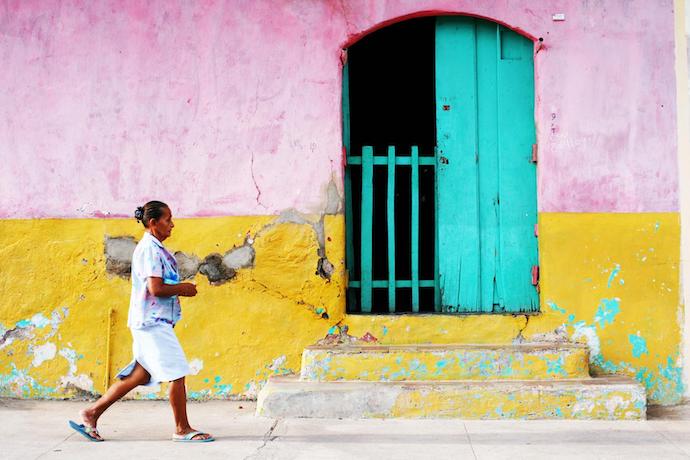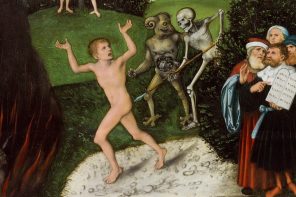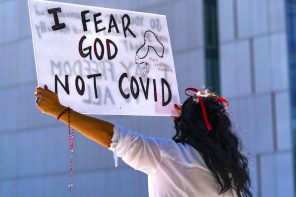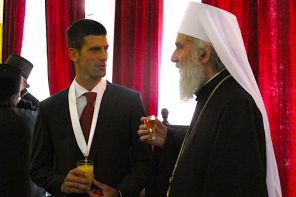One month ago, as Merry Zeledón was waiting in line at a store in Matiguas, Nicaragua, she was disturbed when a man ahead of her suddenly collapsed and began experiencing convulsions. “I don’t know if it was due to COVID-19, but it was alarming. We really don’t have much information about what is going on,” she says.
In Nicaragua, which already suffers the burden of being the second-poorest country in the Western Hemisphere, a growing number of people are uneasy with the gap between the government’s story about COVID-19 and the reality they see in their communities. While the New York Times and other news outlets have covered this story in the U.S., the amount of reportage has not been extensive, perhaps because the U.S. is struggling with its own rising levels of infection here.
However, a closer look reveals some uncanny parallels between the US and Nicaragua in that both countries are led by governments that have not assumed strong leadership to fight the disease. In the case of Nicaragua, the government has instead made decisions that fail to stop—and indeed even encourage—the spread of COVID-19.
“There is a lot of misinformation,” says Zeledón, a produce vendor at one of Managua’s main public markets who returned to her family farm in the North of the country last March. Since that time she’s been struggling with hunger and economic hardship as well as fears about COVID-19. “The message from the government is that everything is fine, or that the disease is actually dengue fever. People like my father hear this on the radio and believe it, since almost all the radio stations in rural areas are controlled by the Sandinistas. At the same time, people aren’t stupid. Many businesses have closed, and most people are using masks and hand sanitizer.”
While the official count cites fewer than 3,000 infections in Nicaragua, scientists express certainty that the numbers are much higher. “I believe that within Central America, Nicaragua is at the epicenter of the pandemic, and in terms of deaths per capita, the numbers are among the highest in Latin America, comparable to those of Brazil, Peru, and Ecuador,” states Dr. Jorge Huete, a molecular biologist based at Managua’s Universidad Centroamericana.
“We can see that cases are growing exponentially due to the abnormally high numbers of deaths,” Huete says. “I personally have lost two family members who have died of COVID-19, not reported in any official count, and I have another family member who is recovering, also not reported. In the university where I teach, fifteen faculty have died.”
While poverty is rampant in Nicaragua, Huete believes that its scientists could be doing much more to collaborate in the global search for a vaccine with better government leadership. “In Costa Rica there is some research on antibodies formed by people who have suffered from the virus. More research could be happening here. There is a lot of potential in Nicaragua, particularly in our universities, that is going to waste.”
In the absence of strong leadership, physicians are taking it upon themselves to alert and educate the public, even to their own professional detriment. Dr. Carlos Quant, one of Nicaragua’s leading infectious disease experts, was recently fired by the Nicaraguan Ministry of Health from the Roberto Calderón Hospital, a public institution where he’d worked for twenty-five years. “They said I was neglecting my work. I know this is not true. I see it as a punishment because I was devoting some of my time off to collaborate with an interdisciplinary group of health professionals, which we’d formed in March and named the Multidisciplinary Scientific Committee.”
Seeking to raise awareness among health care professionals and the public, the committee used social media to communicate its findings about the virus to the public. “I believe I was fired because the facts I presented did not line up with the official story. Since then, others have also lost their jobs.”
Additionally, Quant says, more than 30 physicians have died while treating COVID-19 patients due to a lack of personal protective equipment, and still others have resigned in an effort to protect themselves from exposure to the virus. “This means that there is a shortage of physicians ready to help,” he says.
This lack of adequate care makes many Nicaraguans more hesitant to go to a hospital if they feel sick. “Normally, if someone is in the hospital, family members stay with them, bring food, and provide other support,” explains Tifani Roberts, a Nicaraguan journalist who lives in the United States and reports for Univisión. “Now they are not allowed access to the patients. They are told, ‘Your mother died last night,’ and no more information is given. The body is put in a plastic bag, shoved into a coffin, and loaded onto a truck, and the family is told to follow that truck to a cemetery—but very few people even know whether to believe their mother’s body is on that truck. There is little trust in anything the government does.”
Meanwhile, rather than urging people to social distance, the government is actually encouraging public gatherings. While the July 19 celebration of the Sandinista Revolution was moved online, many other concerts, dances, and other activities have continued. “It’s as if they want people to get sick,” says Edward, an American church worker who’s lived in Nicaragua since the 1980s.
The motives for this approach to the virus seem clear to many Nicaraguans. “Early on they made a conscious decision to try to protect the economy,” says Dr. Quant. “They said they were following the Swedish model, seeking herd immunity, though there was no evidence it would work. I believe that the virus will continue to spread until all vulnerable people and communities have been infected.”
For people who remember the Sandinista Revolution of 1979, the government’s current policies are particularly disappointing. “I came here in the 1980s to work with Christian Base Communities after the Revolution,” Edward says. “The Sandinistas changed, largely due to the influence of Ortega himself and his family. I believe Ortega was well-intentioned as a revolutionary, but once he came back into power in 2006, he became more corrupt and dictatorial. I don’t know if he is motivated by greed, but he certainly seems determined to keep power concentrated in his own family.”
Tifani Roberts describes Ortega as quite similar to Trump. “This is how I explain it to people in the US. Like Trump, Ortega spins everything to his political advantage. The government was barely recovering from the pension crisis of 2018 when this pandemic hit. The economy was just starting to bounce back, and the government wanted to stick to its plans. They told doctors not to wear face masks in emergency rooms so as not to scare people. At first there were TV campaigns to wash hands, but no one was wearing a face mask. I see so many similarities with Trump. Ortega cannot show any weakness,” she says.
Ironically, Ortega has sought to maintain his revolutionary image while enacting policies similar to those of Trump or Brazil’s Jair Bolsonaro. “Ortega is ultra right-wing,” says Dr. Jorge Huete. “He calls himself a socialist while using neoliberal methods. Meanwhile, his government has lost credibility. Not long ago they said there were nine new cases in a week. We know that in just one hospital there were nine cases in a day.”
While people are trying to protect themselves, Dr. Quant believes that it won’t work in the absence of good policy. “Many people in civil society have decided to self-quarantine, but in my view it is not enough,” he says. “I believe the majority of Nicaraguans will contract the disease. The exponential curve started to grow in March and April, and it is showing no sign of slowing.”
As in all countries, it’s the most vulnerable in society who suffer the most. “Those of us who live in poverty have it the worst,” says Merry Zeledón. “We can’t do social distancing. We need to ride the bus. A lot of people are illiterate, and their only news source is government stations on the radio. Farming is hard, and hunger is worse than usual. Also, Nicaraguans often travel to Costa Rica for temporary work, but that is impossible now.”
As difficult as it is, Nicaragua’s scientists, religious leaders, and journalists are continuing to do the best work they can to give the public access to the truth. “The Multidisciplinary Scientific Committee has no political aim,” says Dr. Quant. “We simply want to inform people and publish valid data. We get accused of sowing panic, but we simply want to inform people in order to protect them. It’s a technical process, not a political one. As long as we are here, we will continue to do this work.”





